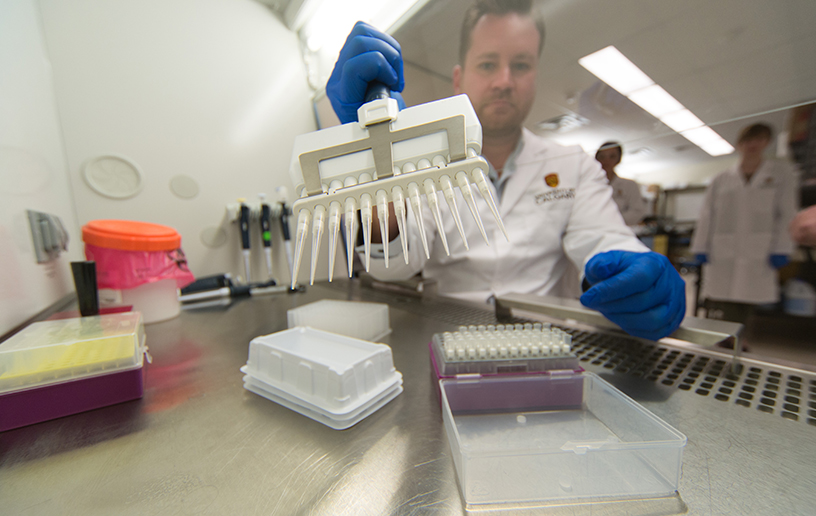You can't miss the vehicles zipping around Calgary and parts of Southern Alberta with the green Calgary Laboratory Services logo on the side. Kind of a taxi for blood samples with the passenger's trip being a time sensitive one with the possible life saving purpose of testing the blood sample for infections or pathogens.
No matter how fast the sample makes it to the lab from any of the 1 million people who end up using the service every year, testing takes time but with new research funding in hand, Ian Lewis and Deidre Church hope to change that. They received GAPP funding through Genome Alberta last year and are using it to take a prototype machine to a final version that can cut the time it takes to identify bloodstream pathogens from up to 4 days to as little as 4 hours. With new funding announced this week (January 25th) the 2 researchers are taking on the broader challenge of treating infections while not adding to the problem of antimicrobial resistance. Here's what Genome Alberta's President and CEO David Bailey had to say in his remarks at the official funding announcement at the University of Calgary.





